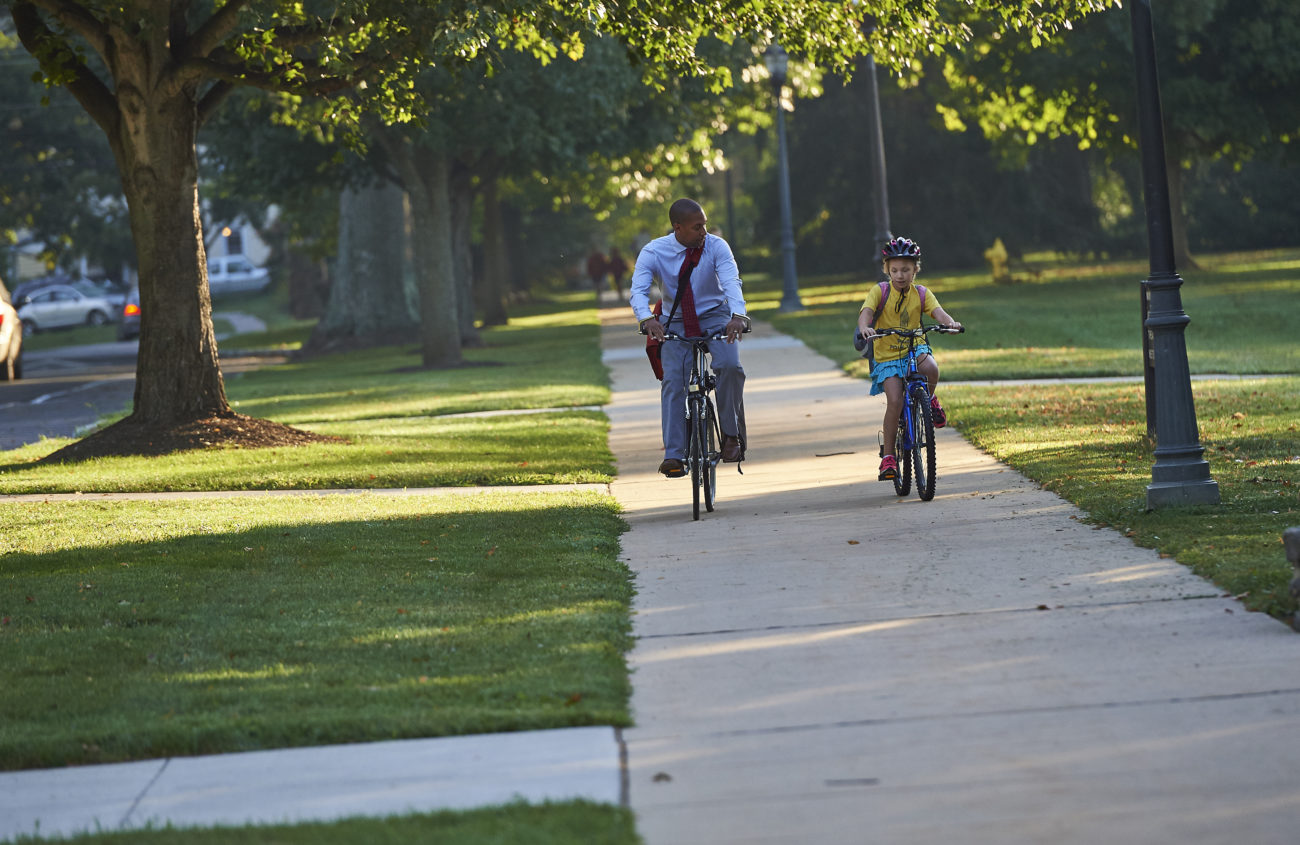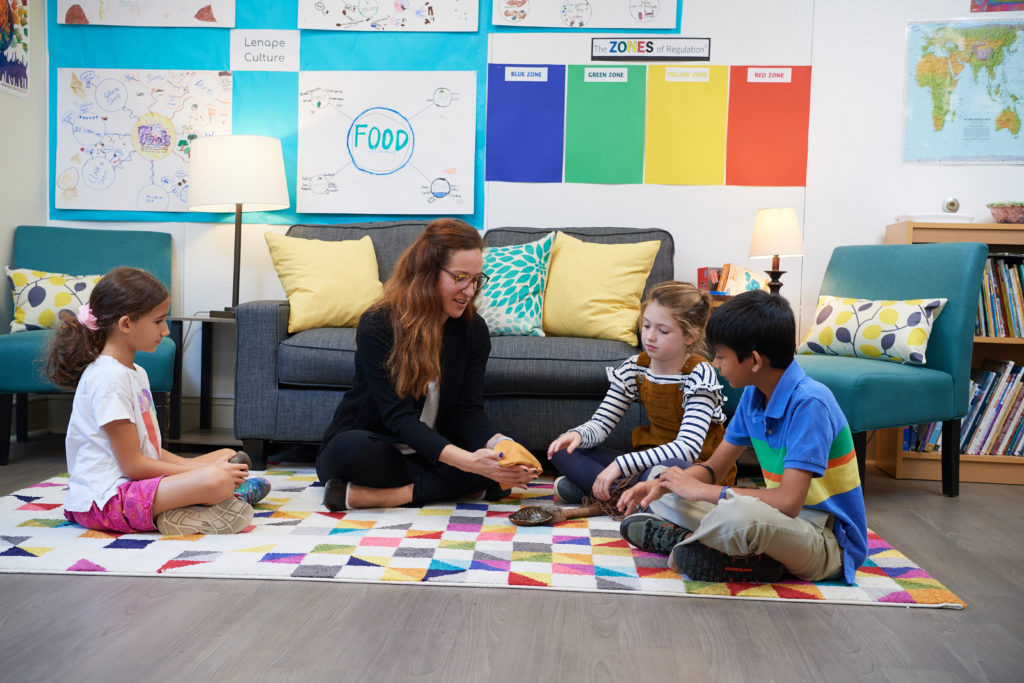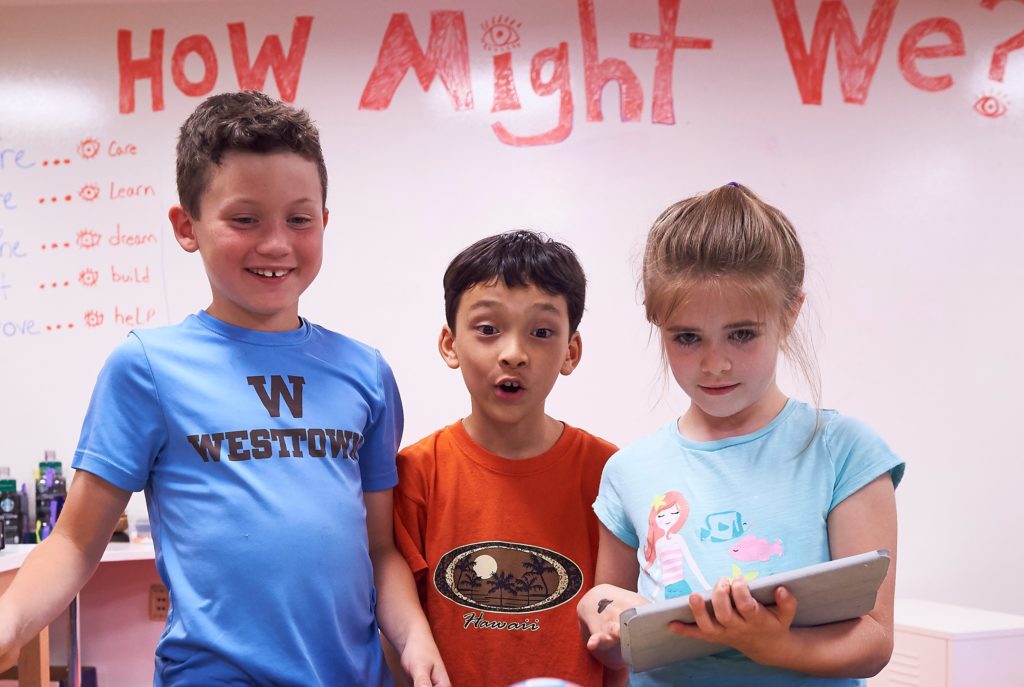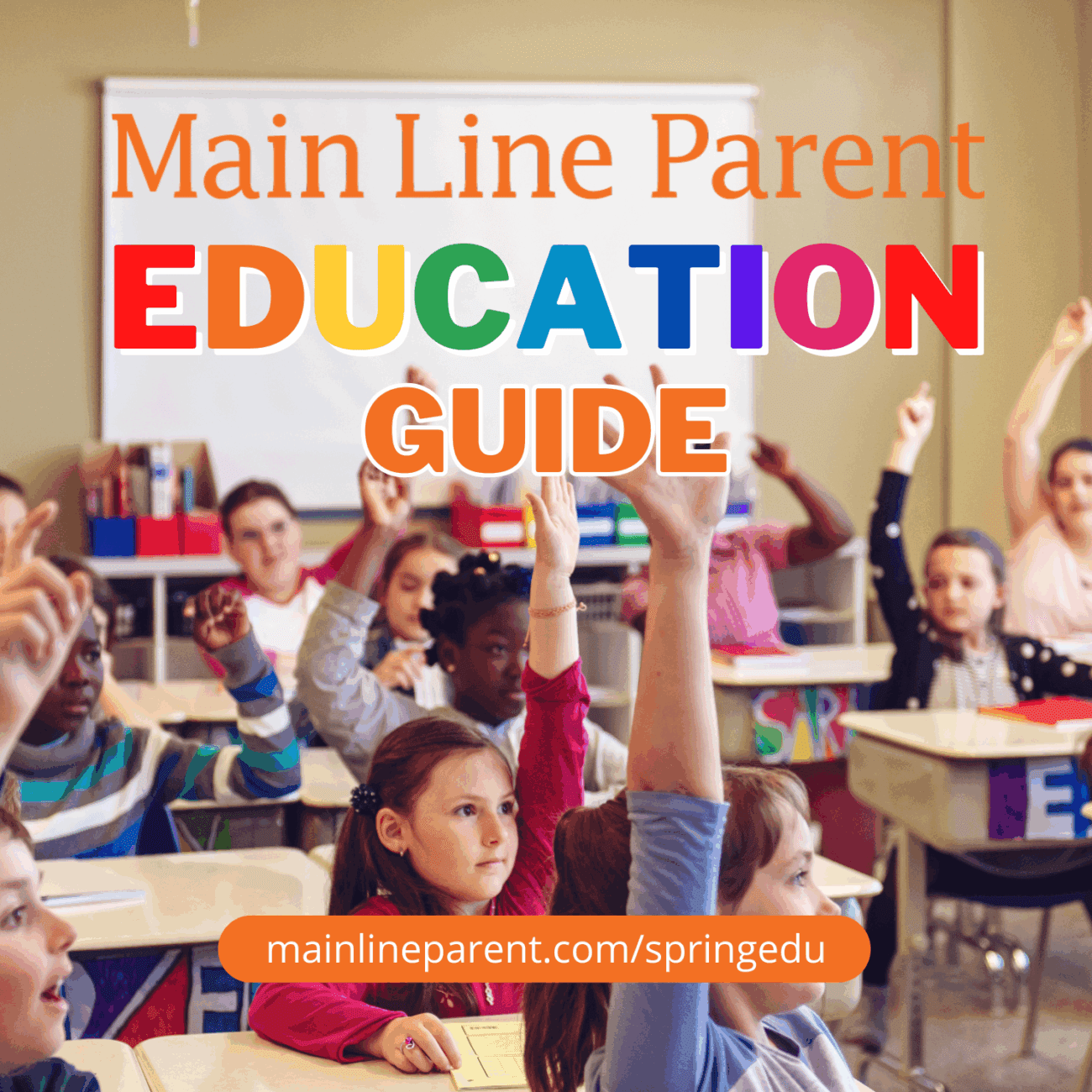Empower Your Child, Empower Yourself
Tips from Westtown School about Social Emotional Learning and Emotional Intelligence and how knowledge of both can help parents.

By Dr. Maria Alonso
Dean of Integrated Wellness and Learning
As parents, we are hardwired to want the best life experiences for our children. We know that life will present challenges and it is our role to help them thoughtfully respond to and even learn to embrace these situations. Social Emotional Learning (SEL), also known as Emotional Intelligence (EI), is an invaluable skill that, when developed and nurtured, empowers children and adults to respond to life experiences in a healthy and well-adjusted manner. SEL skills contribute not only to your child’s academic success but also to their future work and life happiness.
Social Emotional Learning (SEL) is made up of five competencies including: self awareness, emotional and behavioral management, social awareness, relationship skills, and responsible and ethical decision making.
So how do we translate this to our everyday life? What do these competencies or skills look like and how do we teach them to our children? Let me provide some real-life examples of SEL skills, how they show up in our adult life, and ways to nurture these skills in our children.
 Empathy
Empathy
When you are able to listen and be compassionate towards your colleague who is upset at work. Empathy is also at the root of amazing customer service.
Empathy can be developed and nurtured in your children in an abundance of ways. One of the clearest pathways to nurturing empathy is through service. Whether it is through volunteer work at a homeless shelter, a visit to an elderly neighbor, reading a book together that teaches empathy, or using Design Thinking in the classroom or at home. Remember to follow up with conversations about these experiences with your children. Guide them in articulating their experiences and the feelings that emerged.
Impulse Control
When you find yourself walking around the park and taking deep breaths before you rewrite an angry email.
Mindfulness practices are a valuable and precious way to support children’s developing ability to control their responses in daily living and especially in challenging life situations. Mindfulness practices can help children pay attention to their feelings in the moment, to feel them without judgment and to be empowered to make wise choices. Start simple – take “belly breaths” together, explore and learn some yoga poses with them, take a walk with them in nature, or simply talk about gratitude.
Communication
When you are with a group of people who are talking over one another in a heated debate and you, by contrast, are able to model focus and active listening.
Mealtimes are a great setting and opportunity to practice communication skills at home. Take turns around the dinner table sharing experiences from the day and include time for questions to be sure that all are “actively listening.” Modeling good communication skills in your day-to-day life is an equally –if not more– impactful experience for your children to learn effective ways of communicating with others. Car rides can prove to be a valuable time to open up the channels of communication as well. Make time to chat with your teen in the car for a few minutes each day and don’t forget the value of also honoring the pauses in between conversations. Silence is an opportunity to process and reflect.
Emotion Recognition
When you enter a room full of people you don’t know and want to connect with them. Proficiency in this skill helps you notice the mood of the room and shift your approach.
Know that this skill comes naturally to some children and is harder for others. Regardless, it can grow as children mature. In young children, Mr. Potato Head is a wonderful toy to introduce concepts of facial features. Playing charades with your child or Feelings In a Jar Game for children ages 8 and up. There are also some great books to read with your child. A few include: The Way I Feel by Janan Cain; My Many Colored Days by Dr. Seuss and the How I Feel Series by Marcia Leonard. In our Lower School, we use The Zones of Regulation curriculum to help students identify the different emotional states they may be in, called “zones.” This helps students gain skills in consciously and intentionally regulating their behavior which in turn leads to improved self control and problem solving skills.
Emotion Management
When you have a dispute with your teen in the morning and you are able to keep your emotions in check.
Parenting can be an emotionally charged experience, whether it is the pure pleasure of cuddling, laughing, or exploring, or the moments of stress and frustration at not knowing how to respond to a situation. Regardless, it is important that as parents we tune in and manage our own feelings because how we respond and model our behavior in these moments deeply impacts our children’s capacity to self-regulate. Tune into your feelings, notice, and observe them. Remember to lean into your own feelings without judgment. Do the unexpected or the opposite when your child is having a difficult moment and a part of you feels like joining them. Instead, approach them with a bear hug (instead of becoming the bear) and say, “it looks like you could use a mommy/daddy hug right now.” Give yourself a timeout. Sometimes we need the time and space to gather ourselves and it is ok to let your child know that you are doing just that!
Flexibility
When you understand changing demands in the moment and work with them adaptively instead of rigidly adhering to the way you know things to work.
We all want to create a level of predictability, organization, and planning for our family life. However, when the family excursion has to be postponed due to work, know that your positive attitude can be contagious. Allow for disruptions in life. When we model flexible thinking and adaptive behaviors consistently, we can count on our children to internalize these experiences and eventually exhibit this kind of thinking and behavior increasingly over time.

Creativity and Problem Solving
This allows you to face roadblocks, struggle through challenges, and brainstorm solutions reflexively in whatever situation you are presented in life.
Creativity is a key component of health and happiness. Allow your child free time and unstructured play every day. Support them in their passions. Encourage them to make mistakes and to fail. Laugh at yourself when you mess up so that they can learn to do so in kind. Laughing at oneself is actually a happiness habit. Give your child the opportunity to disagree with you and to develop divergent thinking. Help them to find more than one solution to a problem. You can even make problem solving a part of the culture and climate of your home. “How Might We” is a popular question in our Lower School. Take this question into your home life. “ The more we encourage our children to think, ponder, and reflect, including “out of the box” solutions, the better we are equipping them to independently solve the simple and the complex problems that they will face in their day to day lives.
Adults are embracing the value in SEL skills and as parents, we now recognize how important it is to nurture them early in life. Ideally, parents and schools partner in this task and ensure that children develop and refine these SEL competencies and related skills throughout childhood and adolescence. While psychology research has shown that SEL competencies are positively correlated with academic success, these competencies also contribute to helping our children lead more satisfying, healthy, and happy lives.





